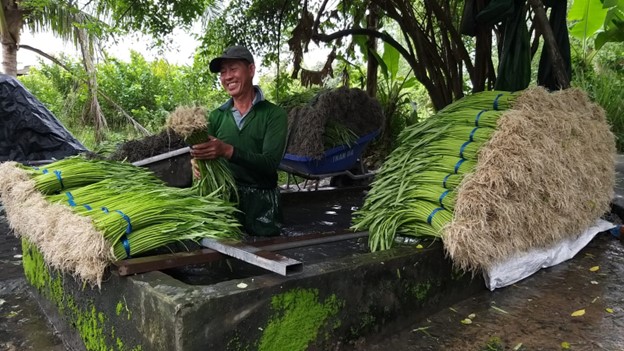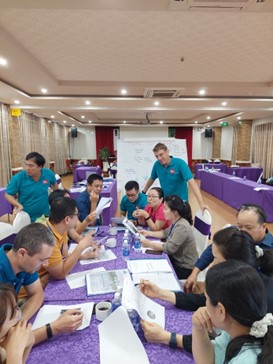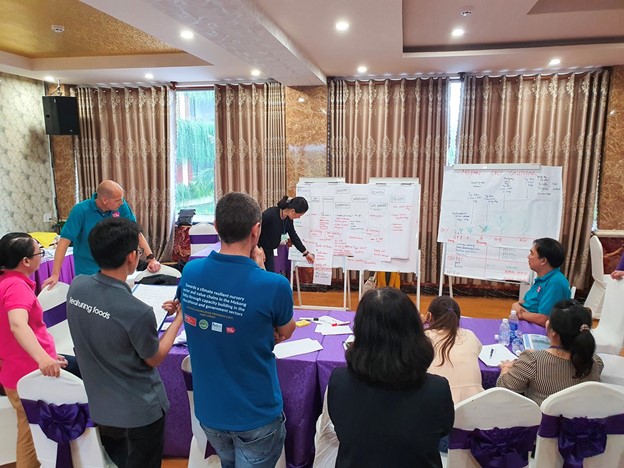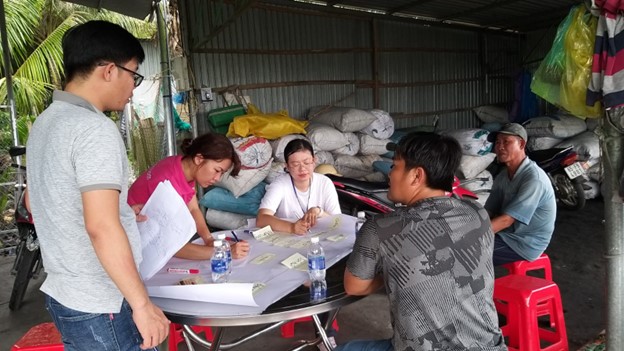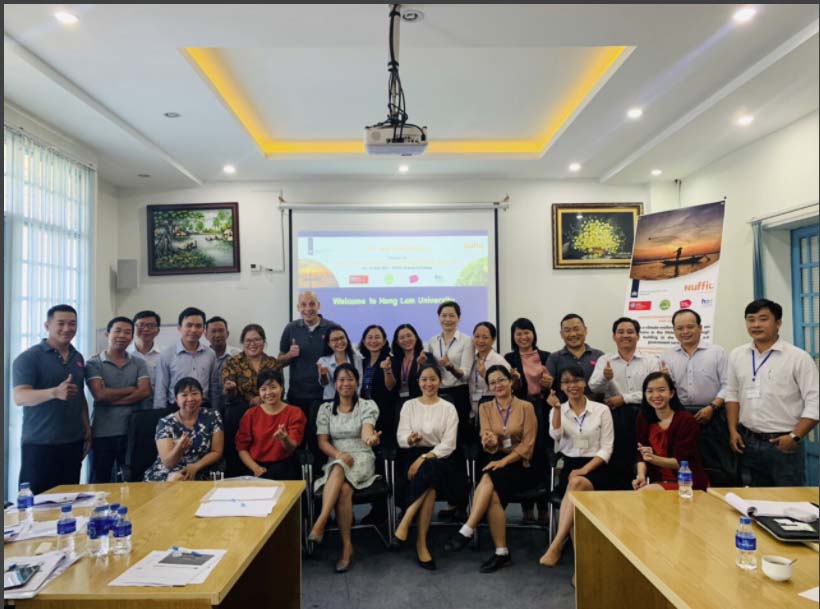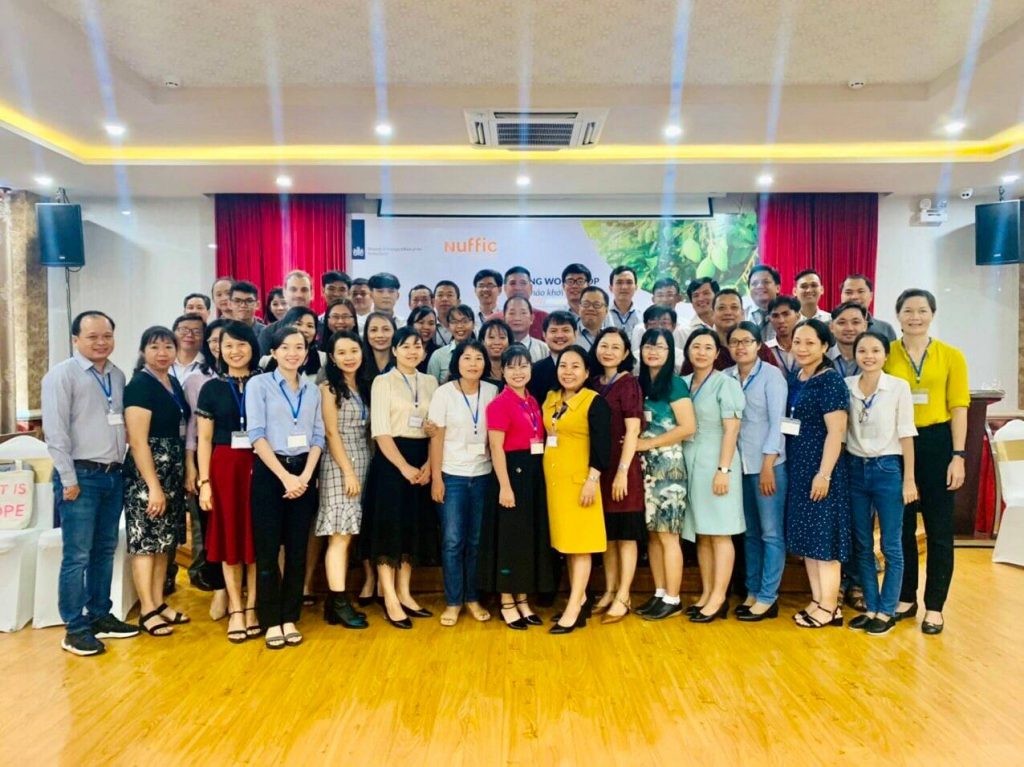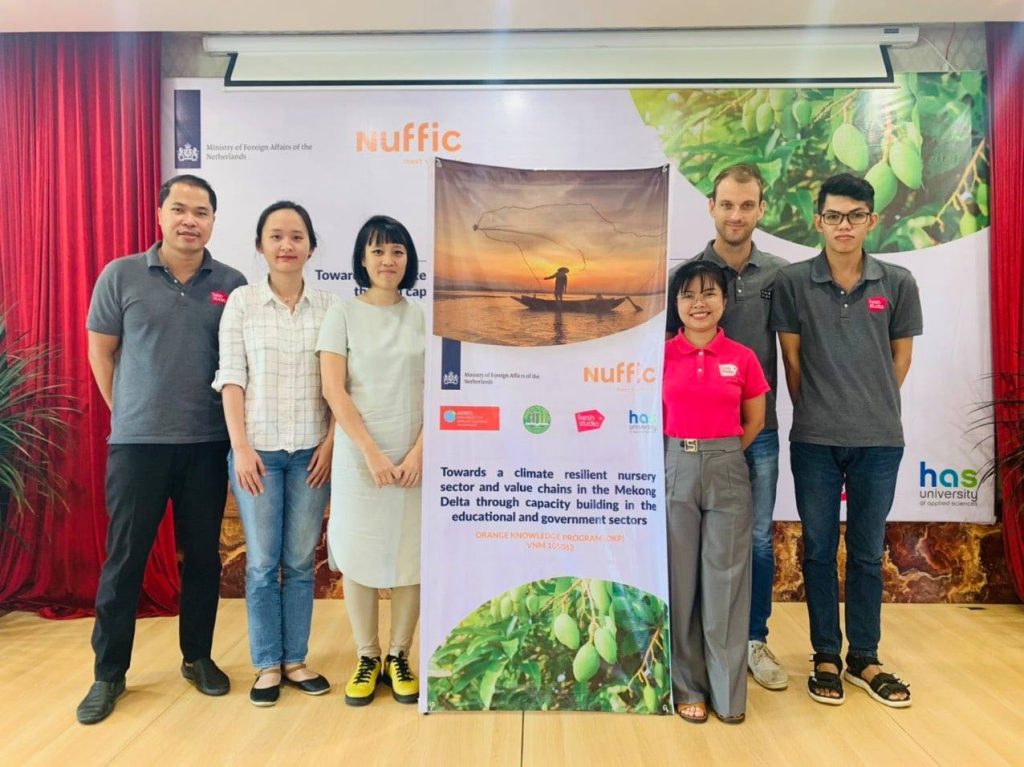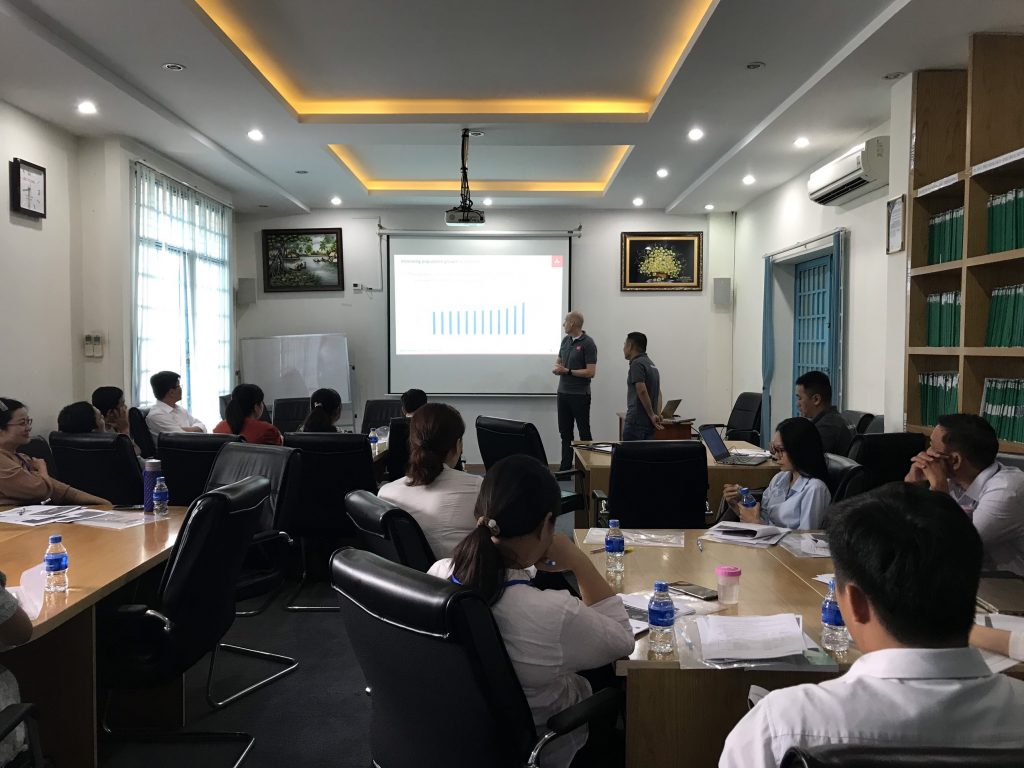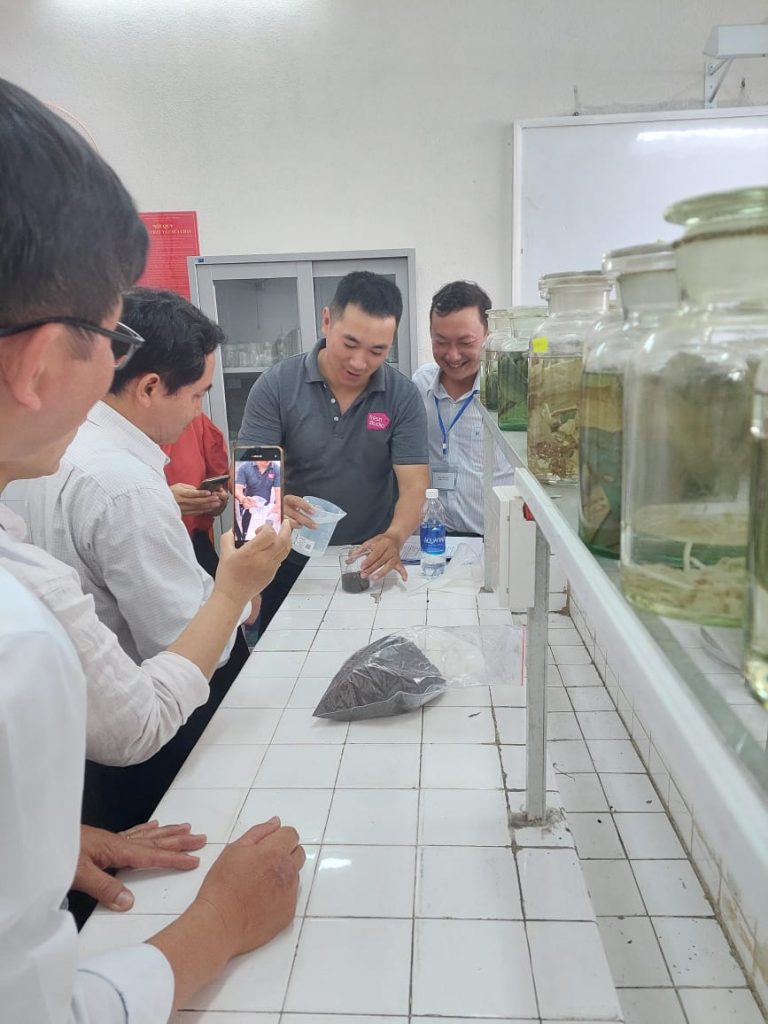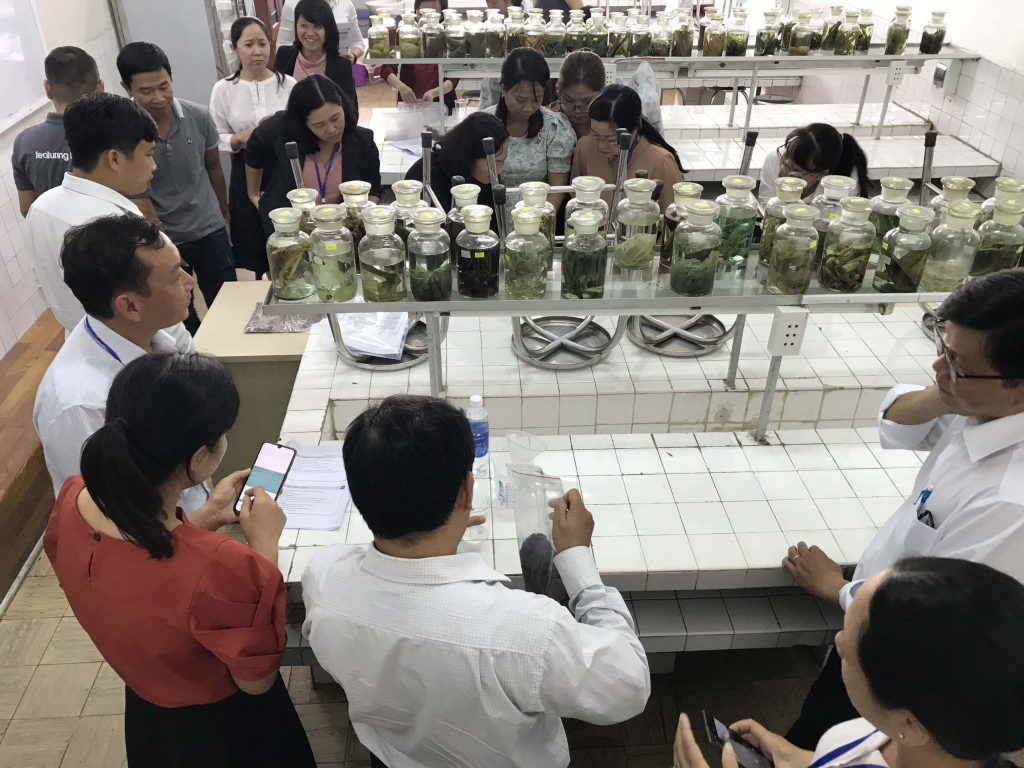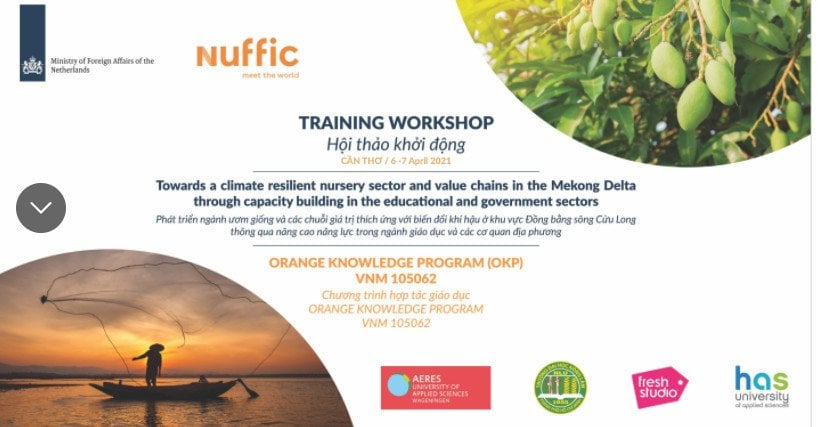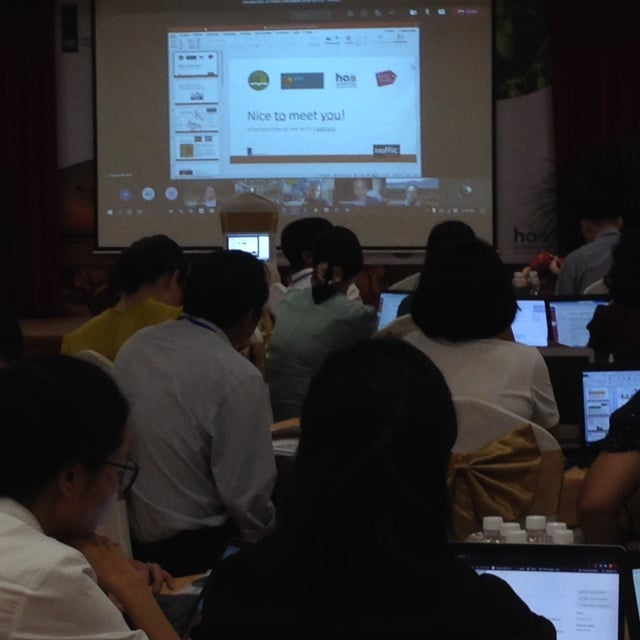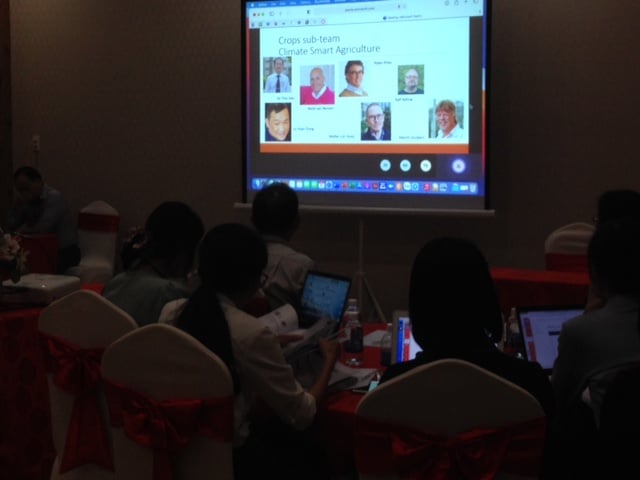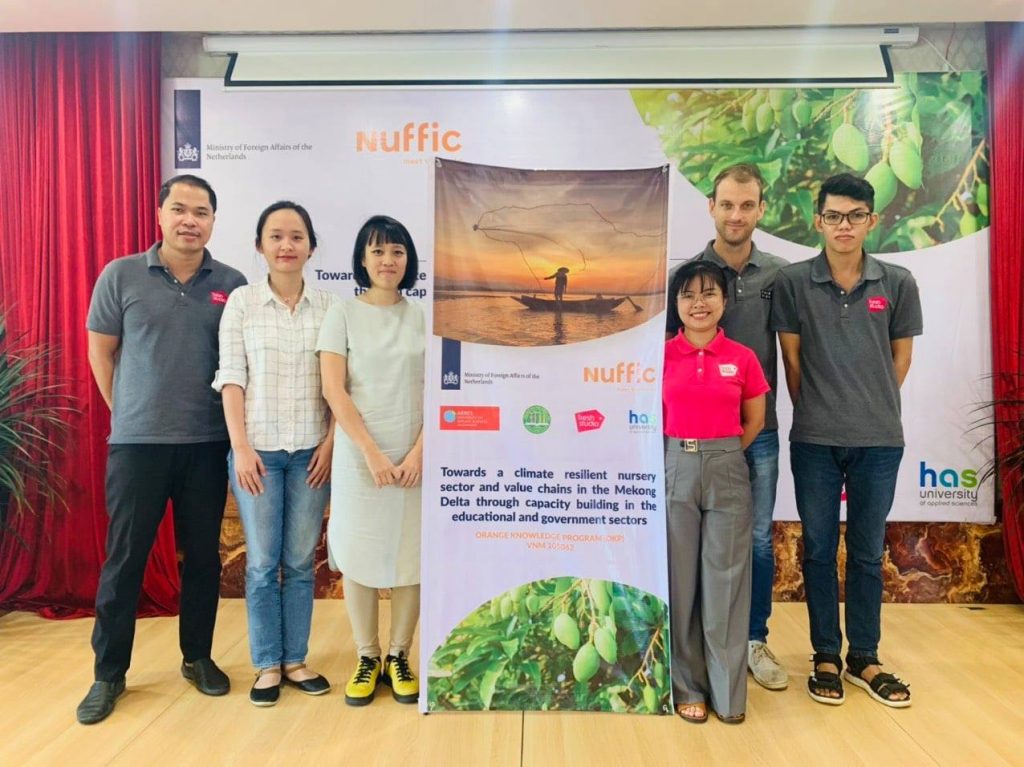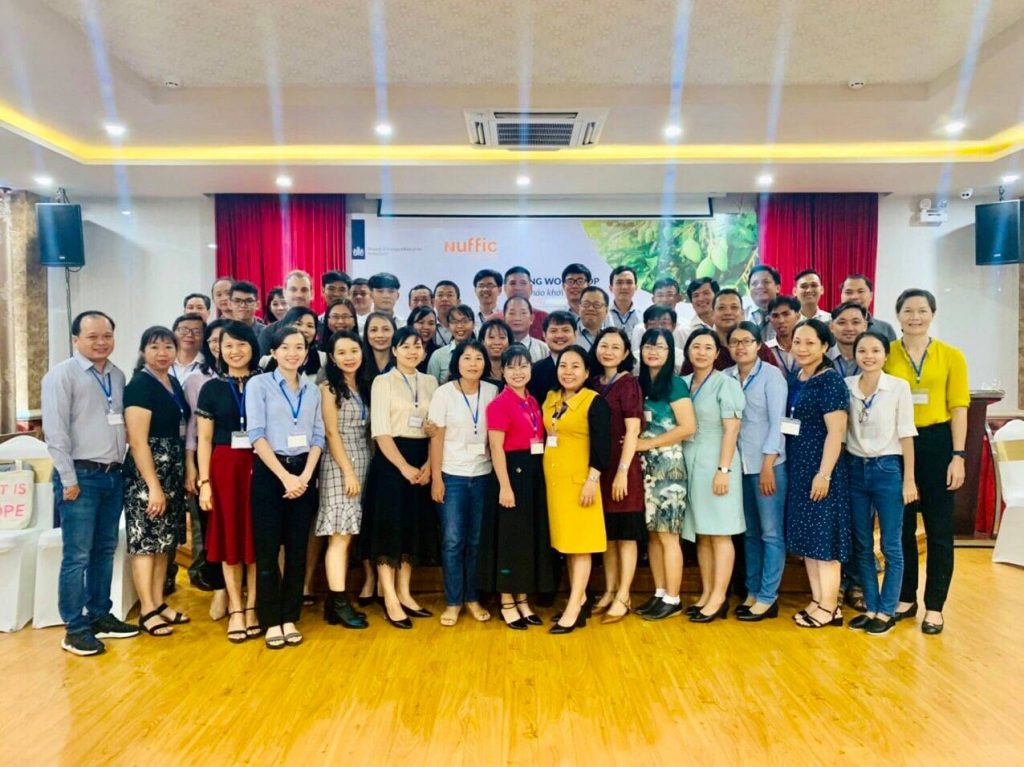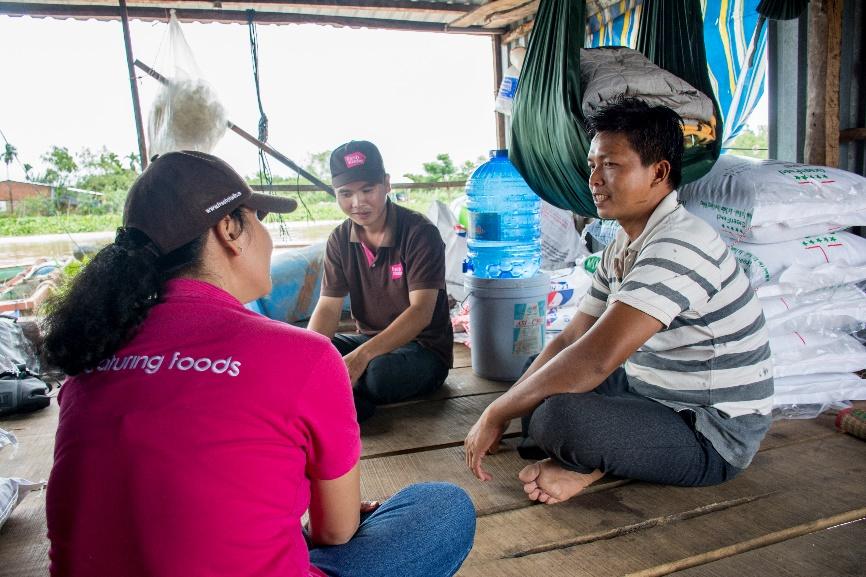On 9 and 10 September 2022 Fresh Studio under the lead of our value chain development expert Mr. Siebe van Wijk organized the 2nd value chain management and market linkage training as part of the Nuffic OKP project: ‘Towards a climate resilient nursery sector and value chains in the Mekong Delta through capacity building in the educational and governmental sectors’.
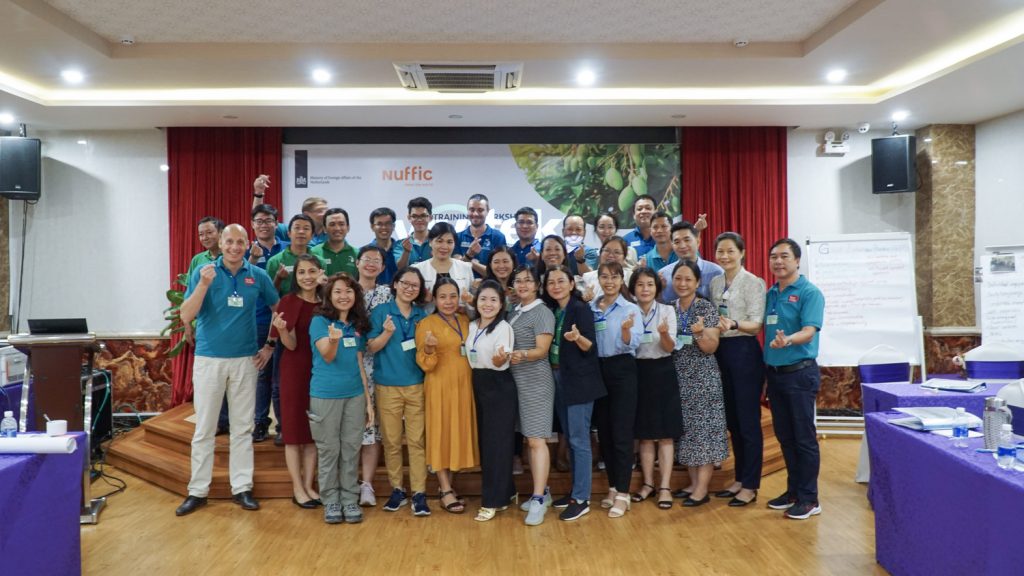
During the training the trainee learned how to do a value chain analysis and which tools they can use to gather the insights of a current chain to be able to develop a value chain.
The highly participatory approach of the training resulted that all trainees were actively involved in the various training sessions. The knowledge and methods trained during the classroom sessions were applied by the trainees during their assignments and field work, including on site interviews with actors active within a water spinach and mustard chain. The training activities accumulated in 2 groups presenting their ideas and approaches required to develop a water spinach and mustard value chain by the end of the training.
The OKP project is a Dutch-Vietnamese knowledge partnership project to promote the development of a climate-resilient nursery sector & value chains in An Giang, Dong Thap, Can Tho, Soc Trang, Tien Giang and Vinh Long, funded by the Ministry of Foreign Affairs of The Netherlands and managed by NUFFIC.
This project introduces scalable water technology pilots for the aquaculture and horticulture sectors to develop climate-smart value chains. The project international partners including Aeres University, Has University, Fresh Studio Innovations Asia and Nong Lam University work with local governments and educational institutions to enhance capacity so that adaptations to cope with transformation in the Mekong Delta can be accelerated at the local level.


